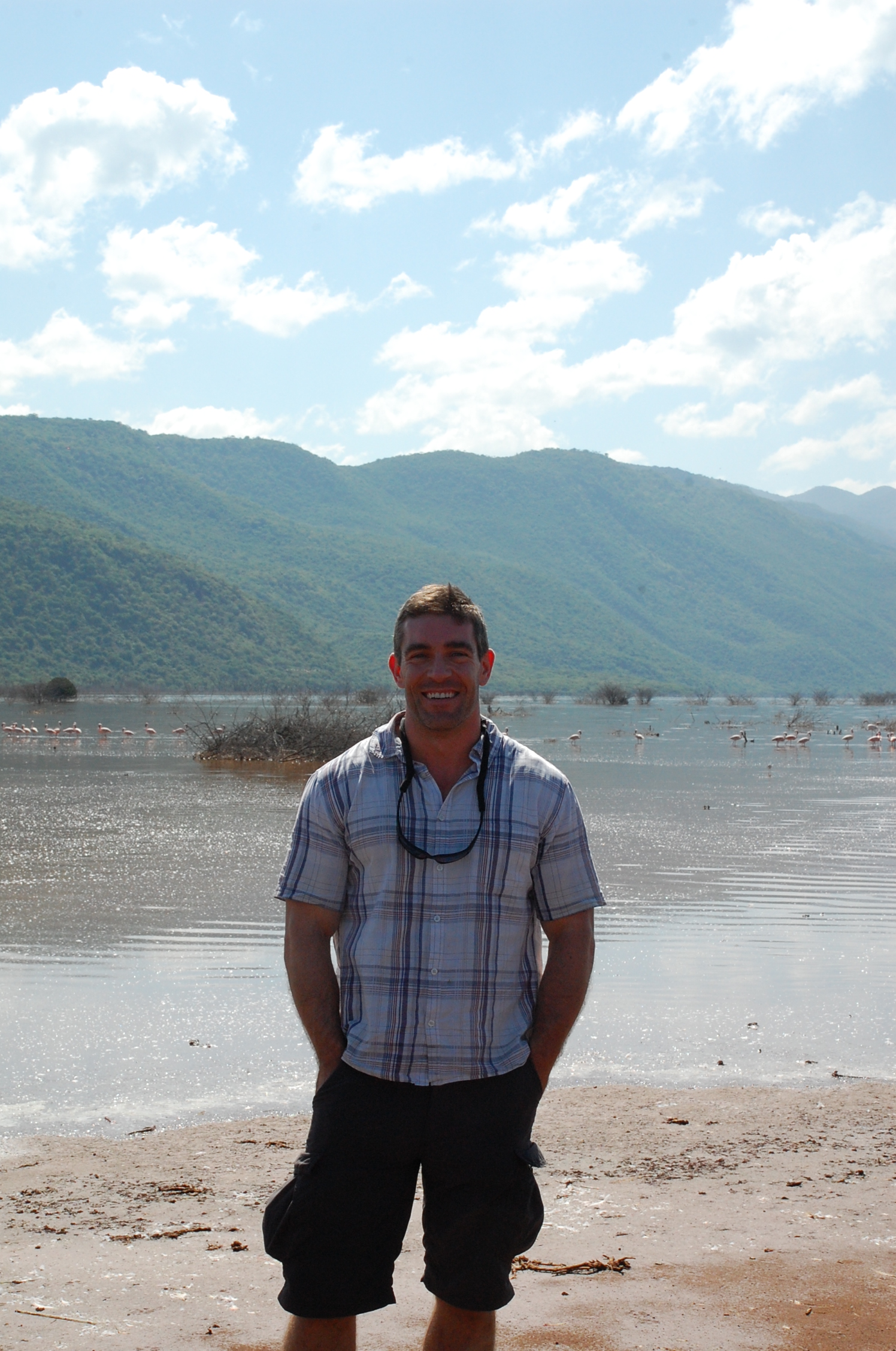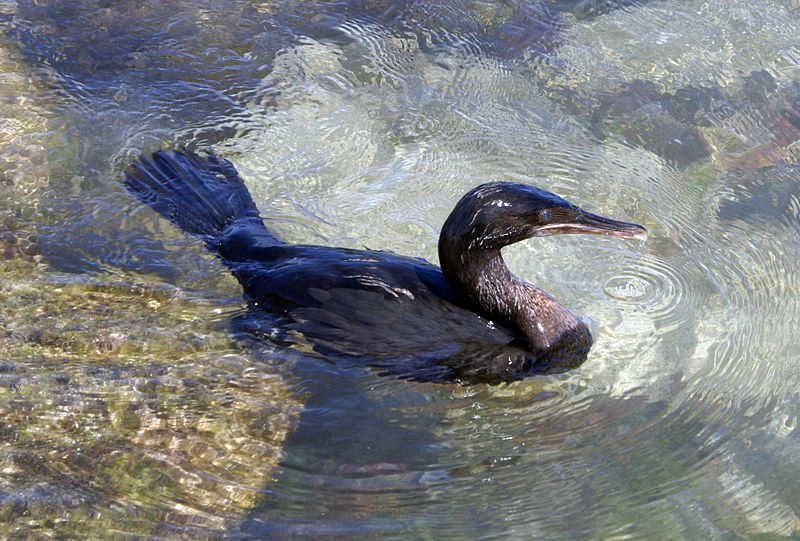2017 Innovation in Sustainability Science Award recognizes Ian Donohue and colleagues for efforts to navigate the complexity of ecological stability
The 2017 Innovation in Sustainability Science Award honors Ian Donohue, Helmut Hillebrand, José M. Montoya, Owen L. Petchey, Stuart L. Pimm, Mike S. Fowler, Kevin Healy, Andrew L. Jackson, Miguel Lurgi, Deirdre McClean, Nessa E. O’Connor, Eoin J. O’Gorman, and Qiang Yang for their review and synthesis of “Navigating the complexity of ecological stability,” published in Ecology Letters in July, 2016.

Ian Donohue stands at a field site on on the shores of Lake Bogoria in Kenya (a soda lake famous for its population of flamingos) in November 2016. He is an Associate Professor at Trinity College of Dublin, School of Natural Resources in Dublin, Ireland. Photo credit: Deirdre McClean
Ecological responses to human action are complex. To develop effective environmental policies, governmental organizations require metrics that describe the dimensions of disturbance and response. Metrics must be couched in terms that are simple and flexible, but meaningful.
One of the biggest challenges facing development of effective policy to address sustainability issues is that the concepts and vocabulary used by scientists to define and promote sustainability rarely translate into effective policy, because they do not include measures of success.
This challenge is particularly apparent in the concepts stability and resilience, which are frequently employed in policy statements. Stability and resilience have long been the subject of empirical and theoretical research in ecology, but have no easily defined and quantified metrics. They sound explicit and measurable, but are, in practice, ambiguous.
Dononhue and colleagues argue that much of the fault for this disconnect lies with the academic community. They summarize and analyze a number of examples to support their claim that ecologists have taken a one-dimensional approach to quantifying stability and disturbance, although these processes are actually multi-dimensional. This one-dimensional approach, they argue, contributes to the lack of adoption of clear policies. They propose three areas where future research is needed and make clear recommendations for better integrating the multidimensional nature of stability into research, policy and, actions that should become a priority for all involved in sustainability science.
























- Donahue, I., H. Hillebrand, J.M. Montoya, O.L. Petchey, S.L. Pimm, M.S. Fowler, K. Healy, A.L. Jackson, M. Lurgi, D. McClean, N.E. O’Conner, E.J. O’Gorman, and Q. Yang (2016), Navigating the complexity of ecological stability. Ecology Letters, 19: 1172–1185. doi:10.1111/ele.12648
- Watch this space for announcements of more 2017 ESA awards — or find all 2017 award winners in the 1 March 2017 press release